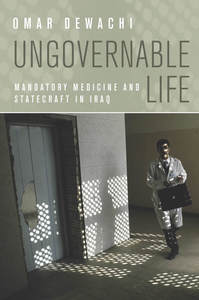Conference:
Session Title:
History in the Making
Session Time:
Session Synopsis:
We all have personal stories of our lives abroad, and most of us end up at least informally documenting those stories in some way, whether in journals, blogs, letters, emails, or even on Facebook or Twitter. But did you know that academic researchers in a variety of fields have an interest in our international lives?
In this session, the
Expatriate Archive Centre (EAC) presents a conversation with the EAC’s Director, a researcher, and an expat blogger working on an exciting new project. They talk about why your story is important, what researchers are looking for, different ways you can make your story available for research, and how that research can improve all our lives.Like FIGT, the
Expatriate Archive Centre (EAC) began in the
1990’s as a group of women sitting around a table, talking about how their own
stories and the stories of people like them needed to be shared, honoured, and
brought together. Their quest to document expat life eventually grew into a
whole archive dedicated to expat life stories. The EAC provides valuable
primary source material to academic researchers and continues to expand its
collection to encompass more diverse experiences and new types of personal
documents like blogs and social media.
Session Description:
In an era where an increasing number of people from more and
more diverse parts of the globe are travelling to, temporarily residing in and
permanently settling in countries outside of those in which they were born,
scholars from an ever-broader range of disciplines are increasingly trying to
make sense of the scale of transnational mobility and its impacts on the
individuals, families, communities and societies it touches both directly and
indirectly. To do this, linguists, philologists, anthropologists, sociologists,
geographers, psychologists and historians are interested in gaining insight
into transnationally mobile peoples’ everyday habits and practices and the ways
in which they themselves make sense of, negotiate and cope with their
experiences of ‘in-betweenness’. While some scholars prefer to generate their
own primary research data through undertaking interviews and observation
themselves, many others turn to already existing material to be able to tap
into the lives of people they wish to study across time and space. The EAC,
therefore, offers rich opportunities to scholars seeking to examine the social,
psychological, political, economic and cultural impacts of increasingly
relevant and diverse temporary forms of transnational mobility – from the
postings and deployments of aid workers, missionaries, soldiers and corporate
executives to the stints abroad taken by international students and researchers
to the refuge sought by people in political exile and so-called ‘lifestyle’
migrants.”
This panel, moderated by Sarah Bringhurst Familia, Public
Relations Manager at the EAC, brings together Kristine Racina (the EAC’s director),
Dr. Meghann Ormond (a researcher in transnational mobility and care), and
Lucille Abendanon, (an expat blogger) to discuss why expat, TCK, and other
international life stories are interesting to researchers. We aim to bridge the
gap between expats and other internationals and the researchers who study them.
We will discuss why recording and preserving our experiences, whether the
momentous or the everyday, is important, whatever the medium used. We’ll talk
about which types of documents are most useful to researchers, and why,
including a discussion about the differences between primary source documents
and retrospective memoirs. Finally, we will talk about some of the many
different ways internationals can make their life stories available to further
academic research.
Bios:
Sarah Bringhurst
Familia has lived on five different continents, but she’s still not sure
where (or if!) she wants to settle down. In the meantime she lives in Amsterdam
and manages Public Relations for the Expatriate Archive Centre in The Hague,
where current projects include @wearexpats, a Twitter RoCur, other digital
archiving projects, and Saudade: An Intersection of Archives and Art.
She serves on the editorial board of HiraethMagazine.com, a
digital magazine and podcast that explores migration and homecoming via the
literary, visual, and performing arts. Sarah blogs about her international
adventures at Casteluzzo.com: in search of a dream to call home.
Kristine Racina,
originally from Latvia, is a self-described “military brat” and has experience
as an adult expatriate in Yemen, the Netherlands Antilles and the Netherlands.
She attended her first FIGT conference in 2014 and was one of the Ignite
session presenters. She collaborated in starting an FIGT affiliate in the
Netherlands in 2014. She is the Expatriate Archive Centre’s director. Kristine is
an experienced consultant and manager of projects and teams in government roles
in Latvia and Yemen, and a number of NGOs and local organizations in the
Netherlands. She speaks multiple languages, including English, Latvian,
Russian, Dutch and French. Kristine has two Master's degrees in Economics from
University of Latvia and Financial Management from Centre Européen
Universitaire de Nancy.
Meghann Ormond is
Associate Professor in Cultural Geography at Wageningen University in the
Netherlands. Meghann is a human geographer, and her research focuses on
the intersections of transnational mobility, health and care. Her work offers
insight into how shifting visions and practices of citizenship, responsibility
and belonging impact health and social care arrangements and transform social
and economic development agendas. For further information, please visit:
https://www.wur.nl/en/Persons/ME-Meghann-Ormond-PhD.htm
Lucille Abendanon
lives an unconventional life on the move. Over the past 15 years she has lived
in six countries on three continents. Her identity is stuck, not so much
between a rock and a hard place, as between Dutch canals and the African
sun…and English country lanes…and Turkish minarets…and chaotic Thai streets… Lucille holds an MA in International Studies and is a
published writer. As an amateur historian she explores her personal identity
partially through researching her family, which has been moving around internationally
for generations. She blogs about her expat life and her exploration of identity
at www.expitterpattica.com.
